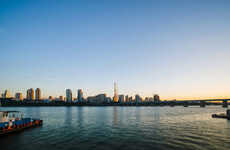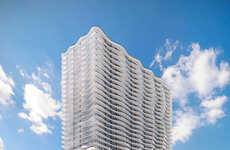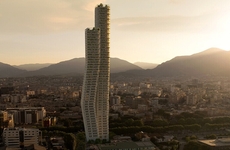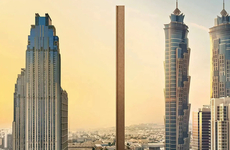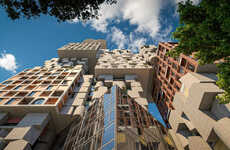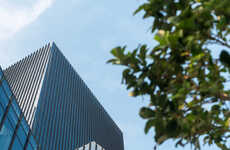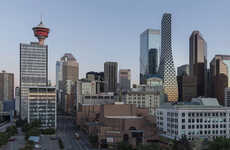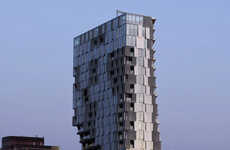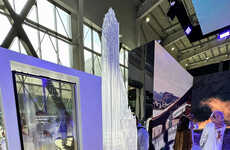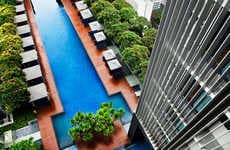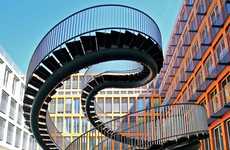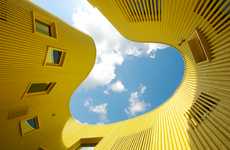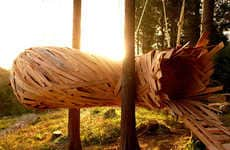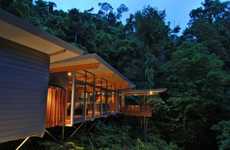
Intricate Density Tower Was Conceived Through Inverted Urban Planning
Amelia Roblin — February 8, 2012 — Art & Design
References: danielleearchitect & suckerpunchdaily
The approach that many architects take to designing a metropolitan monument often begins with analyzing the existing urban fabric and coming up with a structural solution that complements it. Alternatively, the creative minds behind the Intricate Density Tower began by devising how their project could reshape the city of Los Angeles.
Daniel Cheng Lee and Jae Hwan Lee ambitiously strove to conceive an icon that would influence the behavior of the surrounding infrastructural context through the use of enormous organic curves that sculpt the graceful and sinuous skin of the translucent structure. A great deal of experimentation and exploration went into establishing the interplay between the solid state of the edifice and the void of the sky and atmosphere above it, referencing the smaller scale of relationships within the Intricate Density Tower as they pertain to circulation between the incorporated gallery spaces.
Daniel Cheng Lee and Jae Hwan Lee ambitiously strove to conceive an icon that would influence the behavior of the surrounding infrastructural context through the use of enormous organic curves that sculpt the graceful and sinuous skin of the translucent structure. A great deal of experimentation and exploration went into establishing the interplay between the solid state of the edifice and the void of the sky and atmosphere above it, referencing the smaller scale of relationships within the Intricate Density Tower as they pertain to circulation between the incorporated gallery spaces.
Trend Themes
1. Vertical Skyscrapers - Opportunity for architects to create innovative, sculptural designs that reshape urban landscapes.
2. Inverted Urban Planning - Potential to reimagine and transform city layouts with unconventional approaches.
3. Organic Curves - Emerging trend in architectural design that incorporates fluid and graceful forms.
Industry Implications
1. Architecture - Architects can capitalize on the demand for innovative structures that redefine urban spaces.
2. Urban Planning - Urban planners can explore inverted approaches to create more dynamic and interactive cities.
3. Construction - Construction companies can leverage the trend of incorporating organic curves in building designs.
3.9
Score
Popularity
Activity
Freshness

